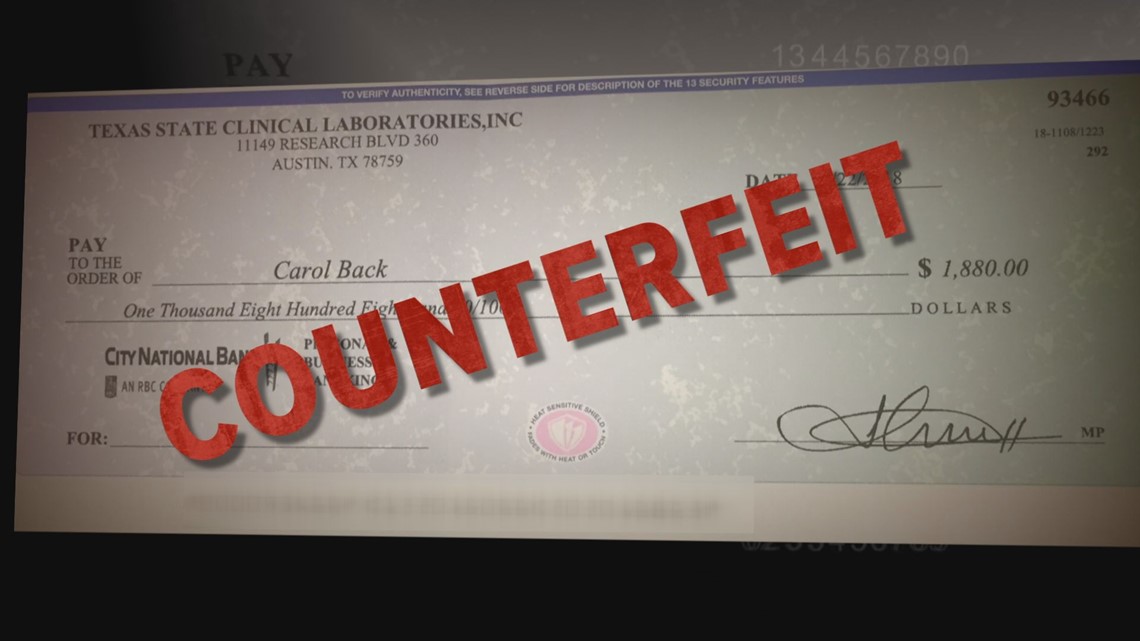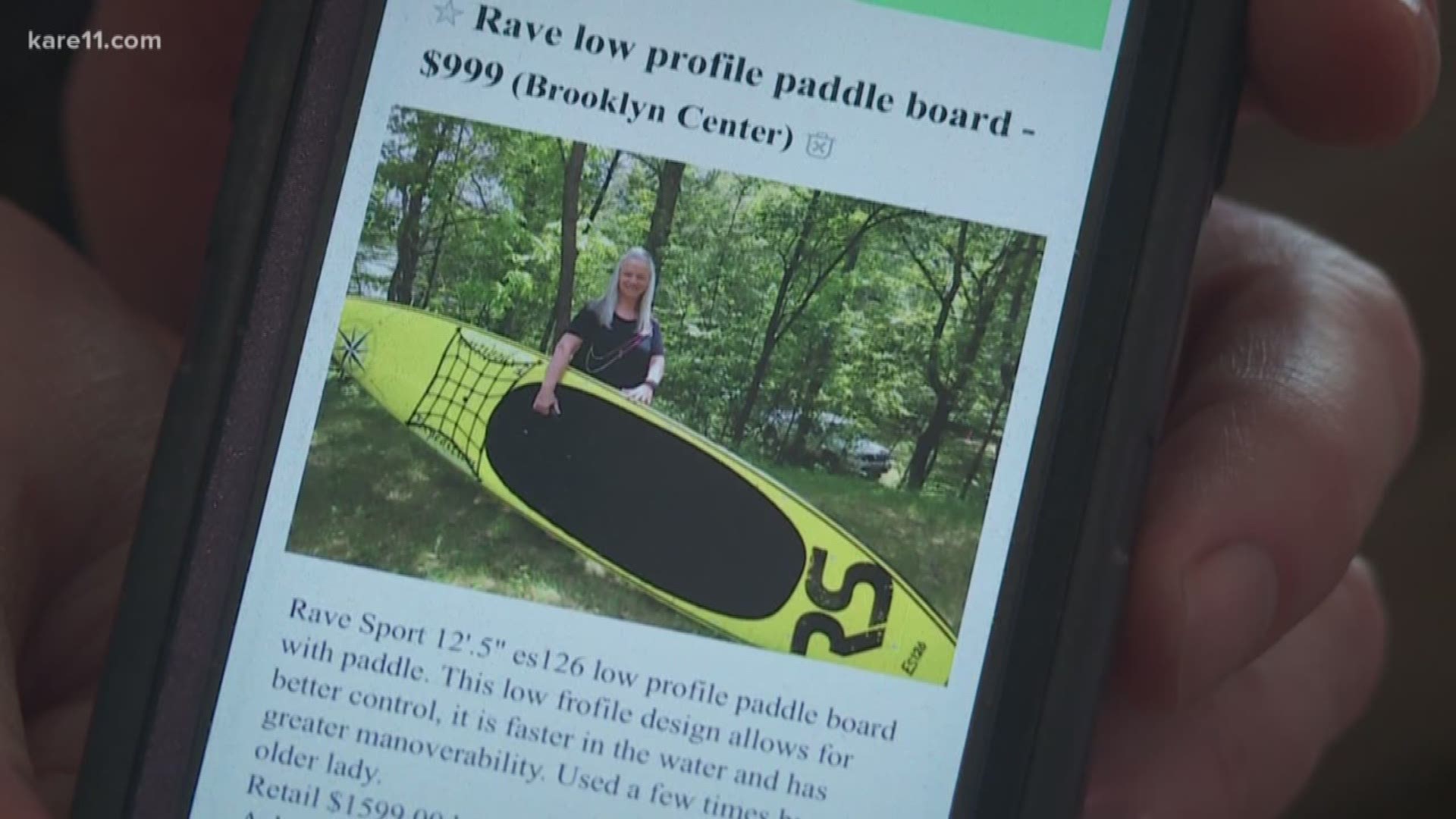MOUNDS VIEW, Minn. - — We’ve all heard the warning “buyer beware," but a Twin Cities woman says sellers need to beware, too.
”I’m thinking she’s scamming a lot of other people and I need to get the word out there,” Carol Back told KARE 11.
Experts say it’s a new twist on an old scam. Criminals armed with counterfeit checks are targeting people trying to sell things on websites like Craigslist.
Carol knows about the fake check scheme first hand. “When I got diagnosed with cancer, a lot of things changed,” she said.
Fighting cancer and looking for ways to pay her bills, Carol offered to sell her expensive yellow paddleboard.
When she listed it on Craigslist for $999, she got an instant offer – for even more!
“It was for almost double the price of what I was asking,” she said.
An authentic looking check arrived quickly by Express Mail. “It was made out for $1,880,” Carol explained, pointing to a photocopy of the check.
In text messages, the buyer said some of the extra money was to pay for shipping the paddleboard. Carol was told to deposit the check, then forward several hundred dollars to the shipping company.
“And she wants me to actually send the money through Western Union,” Carol said as she read the message she got.
“Do you know any Western Union location around you?” the text message said.
That, experts say, is a huge red flag – a tip-off that it may be one of the scams the Better Business Bureau has been tracking for years.
A new BBB study finds that complaints about “fake check scams” have doubled over the past three years and tricked as many as 500,000 Americans last year alone.
“If your check bounces, you’re not going to get another check from the bad guys. They’re gone. And you’re on the hook,” said the BBB’s Dan Hendrickson.


Here’s how it works.
Remember the big check Carol got? It’s from a real company in Texas with a real bank account.
But when KARE 11 investigated, we discovered the check was actually counterfeit. Unfortunately, that’s something your bank might not be able to tell right away.
“Bank tellers are pretty well trained,” Hendrickson says. “They can spot fake checks sometimes but not always.”
In fact, check writing software programs used by many small business, and available for anyone to buy online or at office supply stores, make it easier than ever to produce authentic-looking checks.
Here’s the problem. Experts say if you deposit a fake check and then forward some of the money, you are responsible if the check bounces - even if it happens days later.
“That’s on you,” Henrickson says. “And, again, that’s why the scammers ask for payment through wire transfers or through services like Western Union or MoneyGram. Because they’re quick, the money goes boom like that. It’s gone.”
Fortunately, Carol was suspicious because of other red flags she noticed.
At first the buyer said she was in Sturgeon Bay, Wisconsin. But the Express Mail envelope that carried the check came from somewhere else.
“The check came from Atlanta, Georgia,” Carol said, pointing to the envelope she saved.
What’s more, the check itself was from a company in Austin, Texas. “Texas State Clinical Laboratories,” Carol said.
It just didn’t add up. So, Carol double-checked with her local bank.
“I asked them to verify if it was a real check,” she said. “And they came back and said, you’re really smart. They said this is a fake check and it’s the fifth one we’ve seen from Craigslist this month.”
The Better Business Bureau estimates that millions of fake checks circulate every year worth billions of dollars. According to the BBB's new study, as many as 500,000 Americans were burned by fake check scams last year alone.
Carol hopes that by speaking out, she’ll help keep someone else from falling for a similar scam.
“To try and steal money from people, I think, is just outrageous. And in the end karma will get them,” she told KARE 11.
The best advice, according to experts: Don’t spend the money until you are certain a check has cleared.
For more tips on how to protect yourself from counterfeit checks and other scams, here’s a link to the Better Business Bureau’s “Scam Tips” website.
Meanwhile, Carol is still battling cancer. Her sister has set up a GoFundMe page to help with her expenses.
If you have a suggestion for an investigation, or want to blow the whistle on fraud or government waste, email us at: investigations@kare11.com

